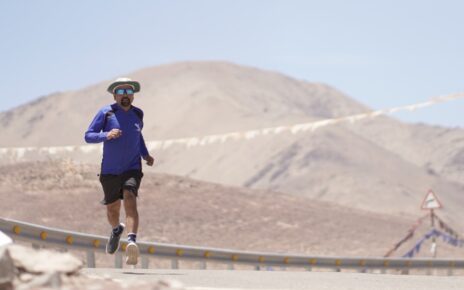Ajay Hinduja, member of the Hinduja family, advocates for the role of cultural exchanges in student development
Students’ education and overall development are much affected by cross-cultural exchange. It is important now more than ever to bring about an understanding of different traditions and perspectives as the world continues to become a global village. Ajay Hinduja, member of the Hinduja family has faith in cross-cultural interaction building young minds and creating holistic learning environments. His support for such programs was recently demonstrated at GHS Karadikkal’s Food Festival, which skilfully blended community, culture, and education.
The Food Festival at GHS Karadikkal: A Model for Cultural Learning
The Food Festival was a huge success, and it was the brainchild of Albonair, the Hinduja Foundation, and the Learning Links Foundation. 58 schools and more than 7,385 students attended the festival, which served as a venue for showcasing and appreciating the diversity of culinary cultures. Rather than being a mere celebration of food, the event became a learning journey toward enriching knowledge of one’s own culture as well as that of their peers.
With over 30 different varieties of food on display, students actively participated in preparing and presenting traditional dishes from their respective backgrounds. The event emphasized how food was also a method for cultural expression, as well as a bond to other cultures. The headmasters, teachers, and the team of RTS created an experience educational by defining to the children what each dish represents, its history, and even its health importance. By that, students came to not only appreciate the cultures but also apply knowledge regarding healthful eating practices.
Ajay Hinduja’s Vision for Cultural Exchange in Education
Ajay Hinduja has long advocated in favour of including cultural exchange initiatives in the curriculum. “Empowering students through cultural exchanges like the Food Festival at GHS Karadikkal is a great way to nurture both education and holistic development,” he said, highlighting the importance of such programs. Food can unite us, educate us, and make us happy. We take pride in supporting these life-changing, enlightening activities for students.
His viewpoint emphasizes how crucial it is to integrate experiential learning opportunities into traditional classroom instruction. Students who participate in cultural exchanges acquire interpersonal skills, a wider perspective on the world, and respect for diverse customs—all of which are critical in the globalized world of today.
The Impact of Cultural Exchanges on Student Development

Cultural exchange programs, such as GHS Karadikkal’s Food Festival, form an integral part of students’ intellectual and social development. This process helps young minds interact with other children from different cultural backgrounds, building interpersonal skills, and creating a bond for inclusiveness as well as oneness. It expands their ability to think; they become open-minded, broadening their horizon, and becoming more adaptable in their personal and professional life.
Learning becomes more engaging, and classroom teaching complements it through hands-on experiences, such as cooking traditional food and learning about the origins of food. On the other hand, exploring other cultures teaches them to respect their own heritage and boosts self-confidence in their culture. In the long run, it prepares a student to become a citizen of this world, as such an event equips a student with understanding and respect for a multicultural world.
The Hinduja Foundation’s Commitment to Holistic Education
The Hinduja Foundation has stood strong for years supporting initiatives in combining education and learning through the way of cultural means. In many ways, the projects were expanded beyond simply conventional academic practices. Their curricula aim for smart, socially aware, and cultured students to grow from each.
The Food Festival at GHS Karadikkal was a huge success, which proves the impact that such programs are going to have. Encouraging this kind of cultural exchange, the foundation is preparing some future leaders who will be empathetic, inclusive, and help drive positive change in society.
Ajay Hinduja’s perspective on cultural exchange underscores its vital role in student development. Projects like GHS Karadikkal’s Food Festival show how practical experiences that value diversity and community involvement may enhance teaching. Students acquire priceless abilities that equip them for a world that is increasingly interconnected by incorporating cultural exchanges into their education.
With continued support from organizations like the Hinduja Foundation, the vision of holistic education that combines knowledge, culture, and social responsibility can become a reality for many more students across India and beyond.




